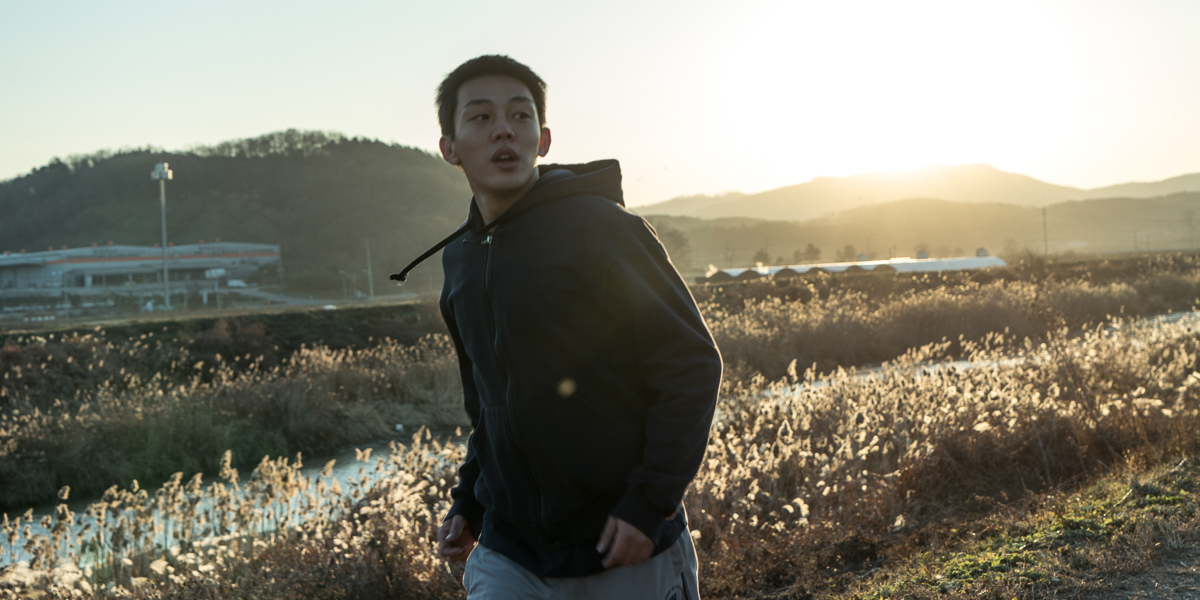The Toronto International Film Festival allows critics who didn’t get to Cannes to catch up on some of the biggest titles they missed on the Croisette, including major prize winners and other highly-buzzed titles. Now, with all the new films at TIFF to cover, it’s impossible to completely catch up, and I’ll have to get to films about which I’m very excited, including “Cold War,” “Climax,” “Ash is the Purest White,” “The Wild Pear Tree,” and “Long Day’s Journey Into Night” at a later date (and I can’t wait). But I did get a chance to catch up with a trio of the biggest Cannes hits, and two of them seem likely to make my top ten at the end of the year. They’re phenomenal.
The first of those is the FIPRESCI Prize-winner from Lee Chang-dong called “Burning,” a movie that makes you reconsider all the other times you called movies haunting because this one gets under your skin in completely unexpected ways. This is Lee’s first film since 2010’s fantastic “Poetry,” which followed his equally great “Secret Sunshine.” The point is he should make more movies.
What brought him back to filmmaking was the chance to adapt Haruki Murakami’s Barn Burning into a story of class, memory, secrets, and the ease with which certain people can disappear while others hide their motives in plain sight. “Burning” is seen entirely from the perspective of a rather quiet, distant young man named Jong-su (Yoo Ah-in), a South Korean who grew up close enough to the border that he can hear the propaganda speakers from his childhood home. We learn about Jong-su in vague bursts. He has a father who is in trouble, but we don’t know all the details. He’s distant and quiet. And then he runs into a childhood friend named Hae-mi (Jun Jong-seo), who asks him to watch his cat while she’s on a charity trip to Africa. There are two key scenes early—one in which Hae-mi explains the art of pantomime to Jong-su and one in which we start to question if Hae-mi even has a cat. Both set a tone about what is seen and what is not, and how both can play with your mind.
When she returns, she’s got someone with her, a charming young man named Ben (Steven Yeun of “The Walking Dead,” having a career-best year with this and “Sorry to Bother You”). Ben is the opposite of Jong-su in every way, including social class and confidence, but he seems taken by the young man. Is he just playing with him? And what are his intentions with Hae-mai? One night, he tells Jong-su a secret and “Burning,” a film that has already shifted in tone a few times, shifts yet again to become something even more elusively terrifying. It is as unforgettable as anything I’ve seen this year and I can’t wait to see it again.

Same goes for the film that beat it for the Palme d’Or, Hirokazu Kore-eda’s phenomenal “Shoplifters,” a movie that finds one of Japan’s best directors returning to a darker tone than some of his recent work. This one feels like a cousin of what I consider his best film, the heartbreaking “Nobody Knows,” another film that examined people often dismissed or outright ignored by society. Kore-eda is one of history’s best filmmakers at analyzing what the word “family” even means—it’s a theme of this, “Like Father, Like Son,” “Our Little Sister,” “After the Storm,” and more—and I’m so happy that the world seems to be embracing his Master status. This may even be his best film.
It’s a hard movie to do justice in a few hundred words in a dispatch, but I’ll try. We meet Osamu (the great Lily Franky), a middle-aged man, and a boy named Shota (Kairi Jyo) in a grocery store as the film opens. They are shoplifting, and it’s clearly a routine they know well. They have signals. They know how to block the view or shopworkers who may catch them. They do it to survive, but there also seems to be a connection between the two of them through the act. On the way home, they see a four-year-old girl on a balcony. It’s a cold night. She’s been there before. Her parents are fighting again. It’s not long before Osamu and his wife take the girl home. They don’t need another mouth to shoplift for, but this girl’s biological family has abandoned her—it’s time for to have another one.
Much like “Burning,” the secrets and themes of “Shoplifters” take time to reveal themselves. Osamu and his wife have a pretty big secret, and the very fact that they’d take another person into this makeshift family and risk that secret being revealed says something about their character. Once again, Kore-eda is keenly aware of the way people talk and move, often revealing things about themselves through a glance or over dinner. There’s a deep empathy for these characters in Kore-eda’s camera that we start to take on ourselves, and the final act is as heartbreaking as anything I’ve seen in years.

Jafar Panahi, already an award-winning filmmaker, was arrested in 2010, sentenced by his Iranian government to a 20-year ban on filmmaking. He is not allowed to make movies or leave Iran. In a show of beautiful defiance, he has made four movies since then. The latest, “3 Faces” is the most traditionally narrative, although it too features Panahi in a leading role and even includes a bit of self-analysis, but there’s a fascinating parable here about acting in Iran, and the perceived value of the arts in a country in which many villagers are judged by how much they can physically bring to the village. What good is an actress in this brutal world?
This is the problem facing a young girl in a small village who wants to leave her home and become a performer. She has been shunned, and sends a video that appears to end in her suicide to a popular Iranian actress named Behnaz Jafari (playing herself). Jafari then sends it to Panahi, and the two venture out to uncover the truth about the video.
From the beginning, Panahi is interrogating process. We see the video, then we stay focused on Jafari’s face as she takes it in, walking around a car at night as we hear someone talking about a film she’s making. It’s a motif repeated again—heartbreak and emotion against a backdrop of routine and process. The first hour of “3 Faces” is remarkable, featuring some of Panahi’s best filmmaking, but it slips through his fingers in the final act. Not enough to derail it entirely, but perhaps enough, like its remote heroine, to keep it from its full potential.












